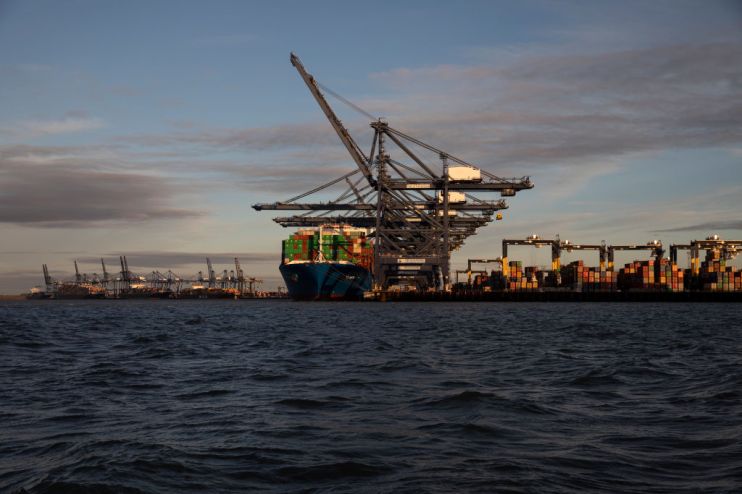UK sinks to bottom of G7 growth league amid global economic downturn

The global economy could be hurtling toward one of the sharpest slowdowns in recent memory, with the UK plummeting to the bottom of the G7 growth league, the International Monetary Fund (IMF) warned today.
A full shut off of Russian gas flows to Europe and more upside inflation shocks would plunge growth into among the worst brackets since the 1970s.
The world’s economic watchdog said if existing headwinds intensify, expansion will drop to 2.6 per cent and two per cent this year and in 2023 respectively, “putting growth in the bottom 10 percent of outcomes since 1970”.
In the organisation’s most likely scenario, expansion is healthier, but the IMF said the likelihood of its gloomier forecast materialising is stronger than usual.
The UK will squeeze out the weakest growth of any G7 nation next year, slumping to just 0.5 per cent, meaning a recession in 2023 is almost certain. GDP will grow 3.2 per cent this year, a 0.5 percentage point cut from the IMF’s April forecasts.
Just at the beginning of 2022, Britain was forecast to post similar expansion to Germany next year.
However, scorching inflation, driven by imbalances in the jobs market, higher energy prices and ongoing Covid-19 trade disruption, has crippled the country’s economy.
The UK also has the highest inflation rate of any rich country, climbing to a 40-year high of 9.4 per cent. It is expected to hit 12 per cent in October, six times the Bank of England’s two per cent target, when another hike to energy bills lands.
That surge in living costs is eroding households’ living standards at the worst rate since records began, igniting fears the UK will tip into recession soon.
In a blow to Tory leadership hopeful Liz Truss’s promise to cut taxes to cushion the cost of living crunch, the IMF said these giveaways will need to be “offset by increased taxes [elsewhere] or lower government spending” to avoid fuelling inflation and adding to the UK’s debt load.
Truss rebuffed the remarks and slammed her contender Rishi Sunak’s plan to delay tax cuts until inflation is under control a “disaster”.
“Let’s be clear. [Sunak’s] plan is to raise taxes. He is planning to raise taxes on corporations, putting our taxes up to the same level as France. That is going to put off people who want to invest in Britain,” Truss said.
A spokesperson for Sunak’s campaign told City A.M.: “The IMF makes clear that inflation at current levels represents a clear risk for current and future economic stability, and that reducing it should be a top priority for every government. That is why reckless spending is the wrong way forward.”
A treasury spokesperson told City A.M. the government has “provided £37bn of help for households, including £400 off everyone’s energy bills, £1,200 for the 8m most vulnerable households and the biggest personal tax cut in a decade – giving 30m people a tax cut worth up to £330 a year.”
The Bank of England, and the world’s other top monetary authorities, need to “stay the course until inflation is tamed,” Pierre-Olivier Gourinchas, the IMF’s chief economist, said.
“Tighter monetary policy will inevitably have real economic costs, but delay will only exacerbate them,” he added.
Governor Andrew Bailey and co are expected next Thursday to launch the biggest rate hike since the Bank was made independent 25 years ago.
They have already lifted rates five times in a row to a 13-year high of 1.25 per cent. The US Federal Reserve has lifted borrowing costs 150 basis points since March, while the European Central Bank shocked markets with a 50 basis point move last week.